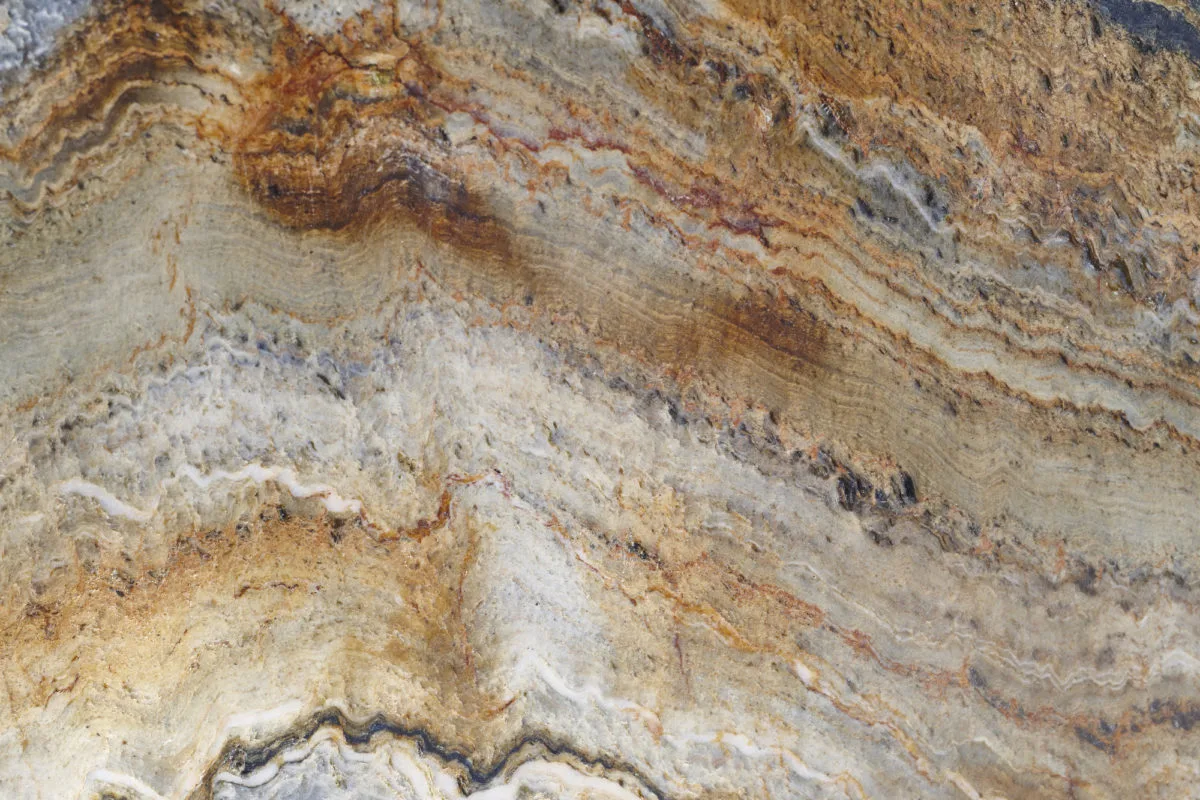Are you thinking about an uplift for your kitchen counters, but you’re not sure what type of kitchen work surface you should choose? Well, if you want to replace your counters with a stunning and durable work surface, you can’t beat stone.
But, you might be wondering what type of stone to select for a striking, seamless natural beauty.
Two stone countertop options are quartz and quartzite. Both of these stone materials are durable and versatile with lustrous finishes.
Read more to find out the difference between quartz vs quartzite so you can decide which one is a good fit for your kitchen or bath.
What Is Quartz?
Quartz is a sedimentary sandstone found in many types of rocks. You can break quartz into tiny grains of sand. Quartz is the hardest of all minerals.
Quartz forms in various colors, such as clear, yellow, white, brown, black, smokey, purple and rose.
People use quartz for many things. It’s used to make glass for windows, crystal glassware, electrical devices, countertops, sandpaper, grinding tools, cement and optical instruments. Even Stone Age people formed quartz into stone tools.
Did you know that quartz has many names? Many people don’t realize these are quartz varieties:
- Jasper
- Flint
- Amethyst
- Tiger’s eye
- Citrine
- Chalcedony
- Onyx
- Opal
- Agate
Quartz is a component in many naturally formed stones, such as granite and quartzite.
What Is Quartzite?
Quartzite is a metamorphic rock naturally formed in the earth. It’s much harder and denser than its parent sandstone, which is quartz. Millions of years ago, quartz was exposed to hot temperatures and magma. This fused the quartz grains together to form quartzite.
Quartzites often keep the original cross grains and pebbles of the sandstone.
You can tell the difference between quartz and quartzite when you break them. The quartz breaks into sand, while the quartzite breaks across the grain.
Quartz vs Quartzite for Countertops
You might be confused about the difference between quartz and quartzite countertops. Both are made of quartz, but quartz countertops are man-made while quartzites are natural rocks formed under the earth’s crust.
How Quartz Stone Countertops Are Made
Quartz stone is manufactured using about 93 percent quartz aggregate chips mixed with 7 percent polyester resin binder, color pigment and other additives.
After mixing these components together, they’re poured into a mold. Then the mixture is sent to a vacuum high-pressure vibrating machine.
The mix stays in the mold for several minutes. Then, it’s transferred to a curing machine. Once the quartz slab cures and cools, it’s polished and cut.
Then the polishing continues to make the quartz slabs glossy and luxurious. You can’t tell the difference between manufactured quartz stone and natural quartzite.
Quartz stone manufacturers use different size molds to form various quartz slabs for use as kitchen and bathroom countertops, flooring and tile.
How Quartzite Countertops Are Made
The life of a quartzite countertop starts at the quarry. The natural stone is removed from the quarry as solid rock. Then the quarry workers separate blocks of stone from the rock. They use heavy equipment to move the blocks from the quarry to the processing plant.
This is where the quartzite gets cut into slabs. Masons continue the detailed work of machine sawing, planing and polishing the stone. Highly-skilled masons continue with more detailed work by hand after cutting the slabs.
They grind the cut face of the stone with an abrasive material to hone and polish the natural stone. This brings out the natural color and pattern of the quartzite.
What Are the Colors Available in Quartz vs Quartzite Countertops?
Your color choices for quartz and quartzite are similar since both of them consist of natural sandstone.
Since quartzite is a natural rock, your color choices are various earth tones, such as beige, black, brown, gray, bluish-gray and white. But, since quartz sandstone has various colors, you can find quartzite countertops with waves and veins of blue, green, purple, rose and yellow.
You can also choose from brushed, honed or polished finishes for your quartzite countertop.
Quartz countertops also come in natural stone colors to give them an authentic look. Some of the most popular quartz colors are elegant background shades of white and off white with breathtaking veins that resemble marble.
Once you select your natural quartz countertop color, you can think about kitchen wall and cabinet colors that will put the finishing touches on your kitchen’s remodeling design.
How to Care for Quartz and Quartzite Counters
Caring for quartz and quartzite countertops vary slightly but both need routine cleaning.
Cleaning Quartzite
Your quartzite countertop should be wiped regularly with a mixture of gentle soap and warm water. Use a soft cloth to dry and buff it after washing.
Use preventative measures when you have a natural stone countertop. If you have any spills or moisture, wipe it up as soon as possible. Also, using coasters for drinks, cooling racks for baked items and trivet for hot dishes will prolong the beauty of your countertop.
You can also have your quartzite counter sealed to prevent stains. Ask your countertop supplier if your quartzite needs a sealer. It depends on how porous the stone is.
Cleaning Quartz
Since quartz is a man-made stone, it doesn’t need any sealer to resist stains. It’s not porous like quartzite, which makes it mold, mildew, stain-resistant and a low-maintenance countertop.
Cleaning up spills will keep its elegant finish glowing. Even though it’s stain-resistant, you want to wipe up liquids, such as wine, tea, citrus and vinegar before they dry. These harsh liquids can cause staining.
If you see any stains, use dish soap or glass cleaner with a non-abrasive sponge to clean your quartz countertop. For sticky messes like gum or dried syrups, you can gently scrape them with a plastic putty knife and follow up with glass cleaner.
Avoid any scouring pads or abrasive cleaners on your countertop. These can dull the finish. Also, bleach and harsh cleansers can damage your quartz.
Quartz vs Quartzite: Which Is the Right Fit for Your Kitchen?
Now that you know the difference between quartz vs quartzite, you can choose which one is right for your kitchen countertop. Take into consideration the colors and finishes available and if you want the uniqueness of natural quartzite stone or the uniformity of manufactured quartz. Either choice will transform your kitchen into a gorgeous showplace.
Contact us for more information about high-quality stone countertops. Our professionals will design and install your kitchen and bath natural stone counters that will fit your budget.

